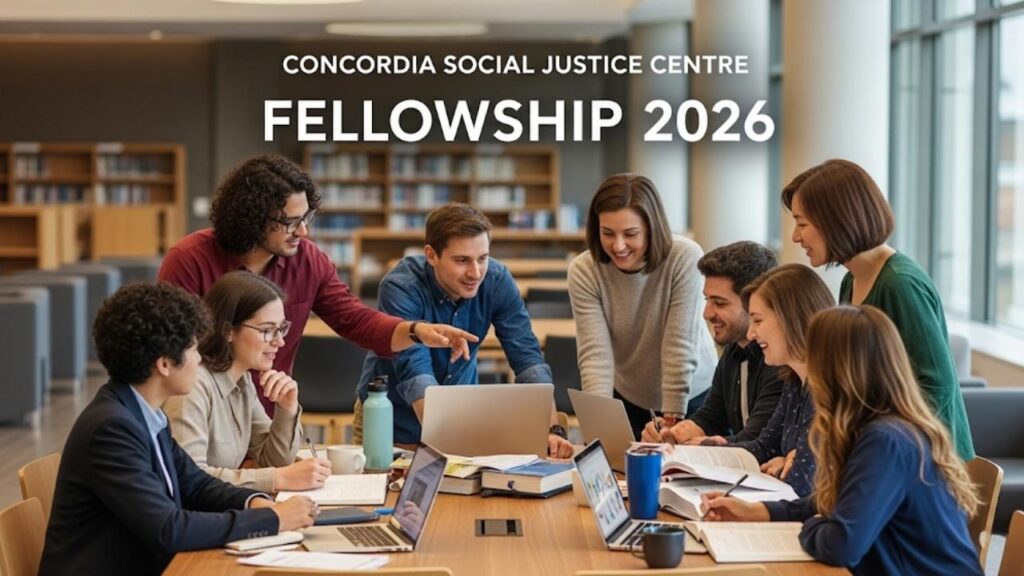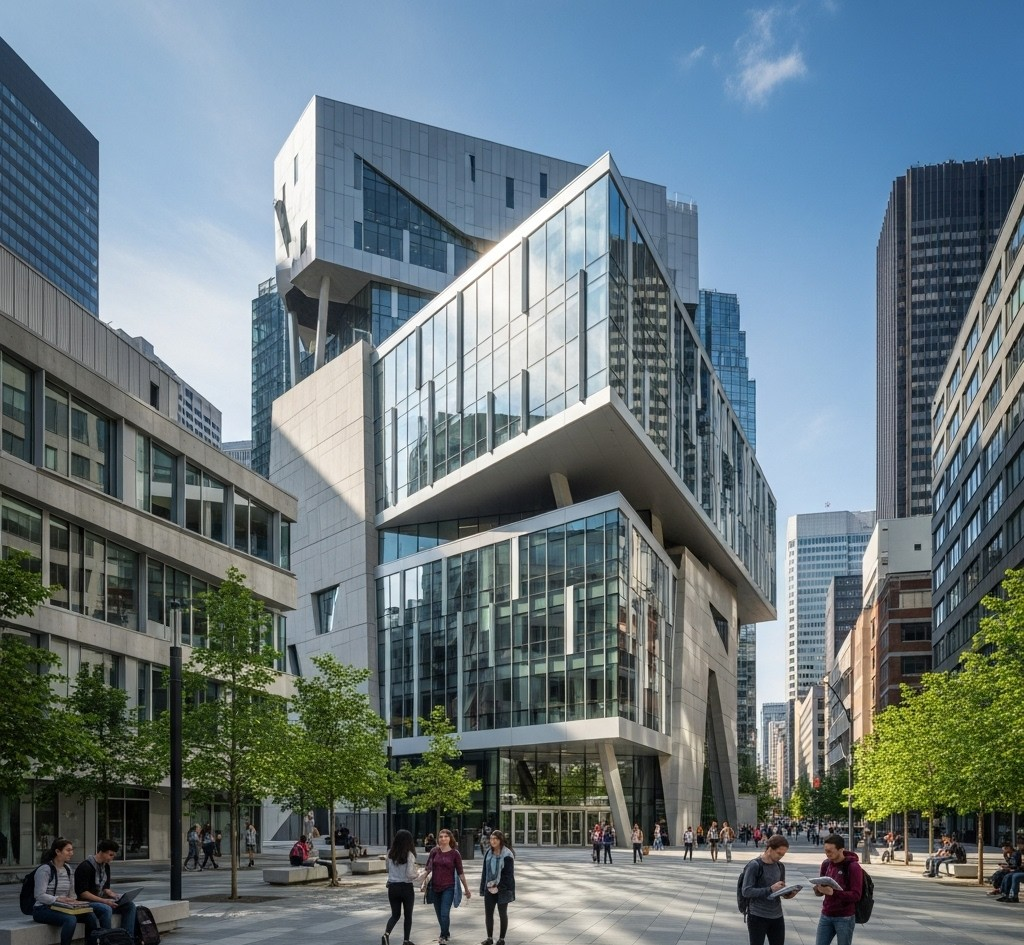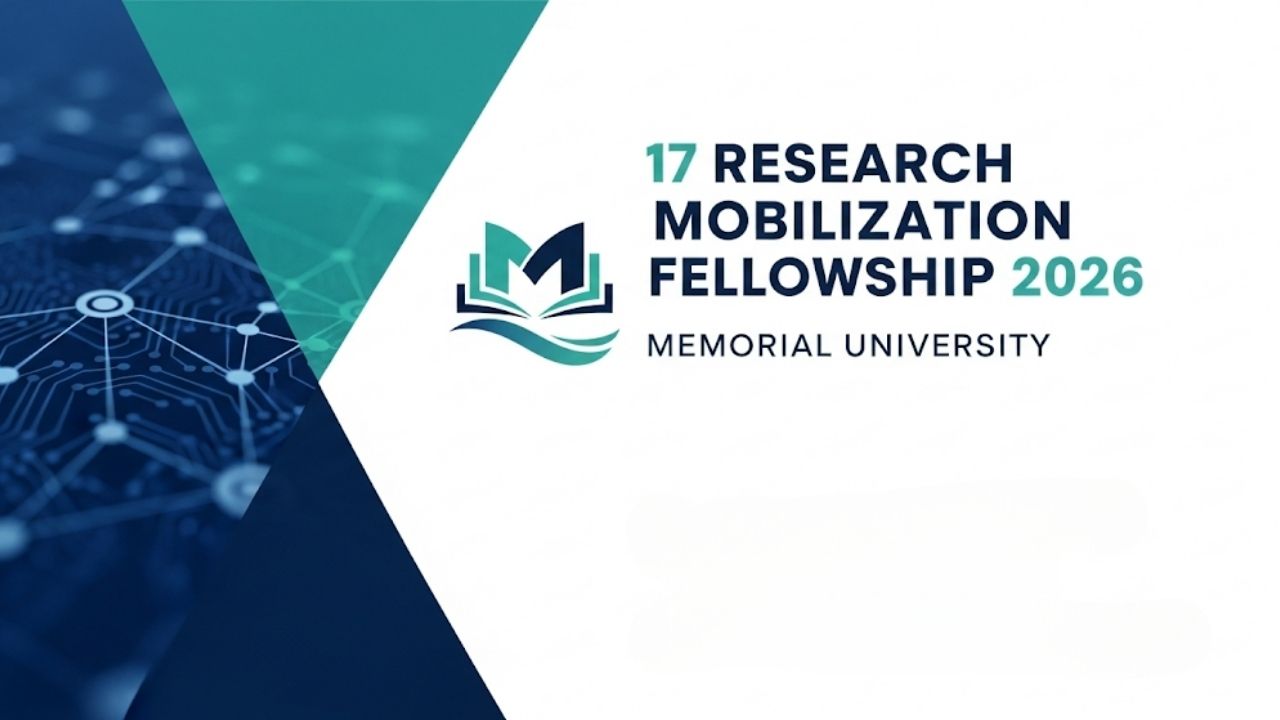Applying for the Concordia Social Justice Centre Fellowship 2026 can feel like a monumental task, but it’s also a doorway to one of Canada’s most dynamic intellectual communities. You have a passion for social change and the academic drive to back it up, but navigating the world of graduate funding can be overwhelming. This guide is here to change that. We’ll walk you through every step, from understanding the Centre’s unique mission to polishing your application, transforming your ambition into a compelling candidacy. Let’s demystify this process together and set you on the path to success.

Concordia Social Justice Centre Fellowship 2026
| Key Feature | Details |
| Fellowship Value | Typically around $20,000 CAD annually, plus tuition waivers for some recipients. Concordia SJC Official Page |
| Eligibility | Open to all new Master’s and PhD applicants (including international students) at Concordia. Graduate Funding Information |
| Key Deadline | Align with your graduate program’s deadline, usually around February 1, 2026. |
What Makes the Social Justice Centre Fellowship Unique?
This isn’t just a cheque to cover your tuition; it’s an invitation to join a vibrant, interdisciplinary community dedicated to tackling the world’s most pressing issues. The Social Justice Centre (SJC) at Concordia University in Montreal serves as a hub for scholars, artists, and activists. It fosters research that is not only academically rigorous but also politically engaged and community-oriented.

Fellows are chosen not just for their grades but for their commitment to creating a more equitable world. You’ll be surrounded by peers and faculty exploring everything from decolonial theory and environmental justice to critical race studies and disability rights. In my experience advising students, the most transformative part of this fellowship is the community. It provides a supportive network that challenges you to think bigger and pushes your research in new, unexpected directions.
Are You the Ideal Candidate? Breaking Down the Eligibility
The beauty of the SJC Fellowship lies in its inclusivity. It’s designed to attract a diverse cohort of thinkers from various academic backgrounds. Let’s break down exactly what they’re looking for.
Academic Standing and Program Admission
First and foremost, you must be a new applicant to a Master’s or PhD program at Concordia University for the Fall 2026 term. This fellowship is a recruitment scholarship, meaning it’s not available to students already enrolled at the university. You must meet all the admission requirements for your chosen department, which typically includes a strong academic record and relevant background experience.
The Crucial Element: Research Alignment
This is where you truly shine. Your proposed research must clearly align with the SJC’s core mandate. The Centre is interested in work that critically examines structures of power and inequality. You need to demonstrate how your project contributes to social justice, however you define it.
Some of the SJC’s key research areas include:
- Anti-racism and decolonization
- Feminist and queer theories
- Environmental and climate justice
- Disability studies
- Migration and border studies
- Activism and social movements
Open to All: A Note on International Applicants
Concordia and the SJC are deeply committed to building a global academic community. The fellowship is open to applicants of all nationalities—Canadian citizens, permanent residents, and international students alike. This commitment ensures a rich diversity of perspectives within the SJC cohort, which is essential for tackling global justice issues.
Crafting Your Application: Guide for the Concordia Social Justice Centre Fellowship 2026
The application process is integrated directly into your main application to Concordia. There isn’t a separate form, which means you need to strategically weave your interest into your standard graduate school application materials.
Step 1: The Foundation – Your Concordia Graduate Application
Your journey begins with the graduate application for your chosen department (e.g., Sociology, English, Political Science). On the application form, you will find a section for scholarships and awards. Be sure to indicate your interest in being considered for the Social Justice Centre Fellowship here. This single checkbox is your official entry into the competition.
Step 2: The Heart of Your Application – The Statement of Interest
Your statement of interest (or research statement) is the most critical component of your fellowship application. It’s your chance to make a powerful case for why you and your project are a perfect fit for the SJC. I’ve seen many successful applicants excel by not just stating their research topic, but by telling the story of why it matters for social justice today.
Here’s how to tailor it:
- Be Explicit: Directly state your interest in the Social Justice Centre Fellowship and explain why you want to be a part of its community.
- Connect Your Work: Clearly articulate the connection between your proposed research and the principles of social justice. Use keywords from the SJC’s mission statement.
- Name Faculty: Identify one or two faculty members affiliated with the SJC whose work aligns with yours. This shows you’ve done your homework and are serious about joining Concordia’s intellectual community.
Step 3: Assembling Your Supporting Documents
While your statement is central, the rest of your application package needs to be just as strong.
- Curriculum Vitae (CV): Highlight any experience—academic, professional, or volunteer—that demonstrates your commitment to social justice.
- Letters of Recommendation: Choose referees who can speak not only to your academic abilities but also to your passion for and engagement with social issues. Give them plenty of notice and provide them with your statement of interest.
- Writing Sample: Select a piece of academic writing that best showcases your critical thinking skills and your ability to engage with complex social theories.
Step 4: Mind the Deadlines
This is crucial. The deadline for fellowship consideration is the same as your program’s application deadline, which is typically around February 1, 2026. Deadlines can vary by department, so verify the exact date for your specific program on the Concordia website. Late applications are generally not considered for funding.
Beyond the Application: What Life as an SJC Fellow Looks Like
Winning the fellowship is just the beginning. As an SJC Fellow, you become an active participant in a thriving intellectual ecosystem. You’ll have access to exclusive workshops, reading groups, and guest lectures that will enrich your graduate experience far beyond the confines of your home department.

You will be part of a cohort of like-minded peers, providing a built-in network for collaboration, support, and friendship. This community helps combat the isolation that can sometimes come with graduate research. Furthermore, being in Montreal—a diverse, multilingual, and historically activist city—provides a living laboratory for social justice research.
Your Next Chapter Awaits
Applying for the Concordia Social Justice Centre Fellowship 2026 is more than a bid for funding; it’s a step toward joining a community that believes in the power of research to change the world. By aligning your passion with a meticulously crafted application, you can position yourself as a standout candidate. Remember to tell your story, connect your research to the Centre’s mission, and let your commitment to a better world shine through. Start preparing your application now—your voice is needed.
Your Ultimate Guide to Winning the CARTA PhD Fellowships 2026
Your Ultimate Guide to American University of Sharjah Fellowships 2026 Open for Applications
FAQs
Q1:Do I need to secure a supervisor before applying?
While not always mandatory, it is highly recommended. Contacting potential supervisors affiliated with the SJC before you apply shows initiative and helps you confirm that your research interests are a good fit for the department. A supportive email from a potential supervisor can significantly strengthen your application.
Q2:Is the fellowship renewable?
Typically, fellowships like this are renewable for a set period (e.g., two years for an MA, three to four years for a PhD), provided you maintain good academic standing and continue to make progress in your research. Always confirm the specific terms in your offer letter.
Q3:Can I combine this fellowship with other awards?
In most cases, yes. Concordia encourages students to apply for external funding, such as federal (SSHRC) or provincial (FRQSC) scholarships. Holding a major external award alongside the SJC Fellowship can often result in a top-up bonus, making for a very generous funding package.








